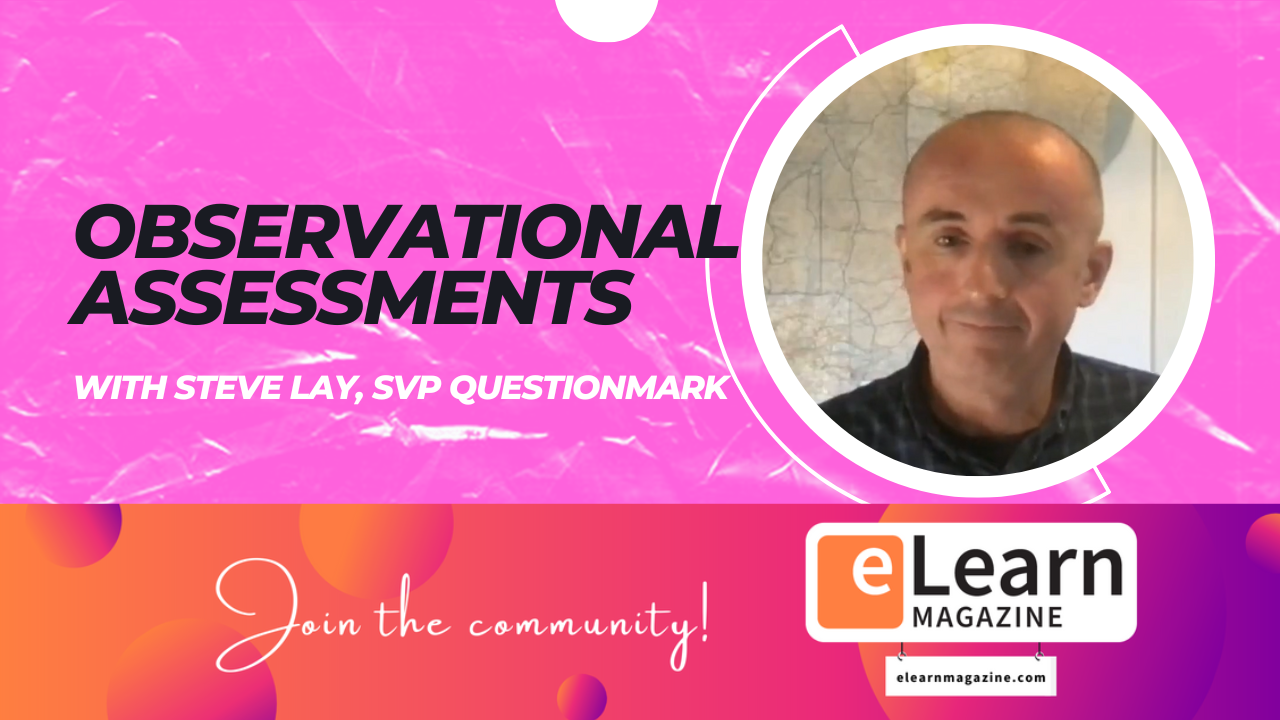Workplace observational assessments are a crucial component of evaluating an employee’s performance and ensuring they are adequately trained and qualified for their job responsibilities. Steve Lay, SVP of Project Management at Questionmark, recently discussed the importance of observational assessments and how technology is changing the way they are conducted for eLearn Magazine.
Observational assessments involve a trained observer watching an employee perform a task in their actual work environment. This type of assessment is considered more authentic and valid, since it closely aligns with the employee’s actual job responsibilities. Observational assessments can be used for a wide range of job functions, with factory training and medical procedures as perhaps the most salient use cases.
Observational assessment in the age of EdTech and AI
The question of how online technologies have affected the practices, expectations and outcomes of observational assessments has become a topic of interest among practitioners. The rise of technologies like virtual and augmented reality, and now Artificial Intelligence, invites us to rediscover and recontextualize the practice.
The COVID-19 pandemic forced organizations to embrace online learning and assessment technologies. Since then, the validity of online observational assessments has gained interest, including academic research. A recent article in Nature specifically addresses whether observational assessments, such as those used in nursing, can be conducted remotely.
Lay believes that observational assessments can be conducted either fully or partially online. It depends on the role of the observer. In some cases, the observer is an active participant in the process, required to be present for safety reasons and to intervene if something goes wrong. However, in cases where the observer’s role is more passive, such as observing a task, observational assessments can be conducted remotely. The advantages of conducting assessments remotely include reducing travel to remote locations and quicker qualification.
Technology is changing how observational assessments are conducted. Lay suggests that augmented reality will have a more significant impact than virtual reality. Even current technology, such as using a phone or tablet to replace a clipboard and paper, is often underused but can make a significant difference, especially in just-in-time assessments.
Today’s tools and Steve’s thoughts for the future
Questionmark is a company that provides online assessment software that allows companies to conduct observational assessments securely and in compliance with regulations. Lay explains that Questionmark has done a lot of work in developing not only technology but also legal and organizational processes to help customers be compliant with regulations.
In conclusion, observational assessments are a vital component of evaluating employee performance, and technology is changing how they are conducted. While some assessments may require an observer’s active participation, many can be conducted remotely, providing significant advantages such as reduced travel and quicker qualification. Companies like Questionmark are providing software that allows companies to conduct these assessments securely and in compliance with regulations.







